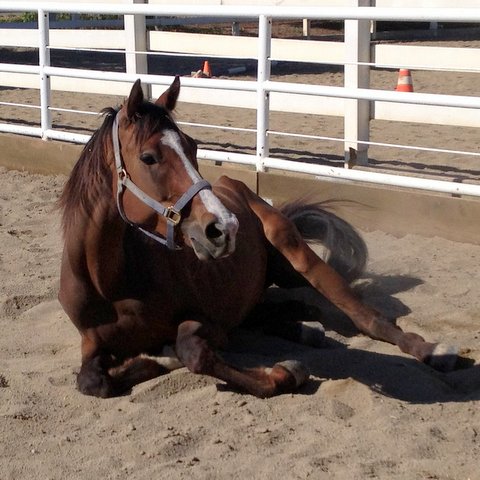There is a language associated with equine rescue that I am reluctantly learning. It is more foreign to me than French, which I am a bit embarrassed to say, I never mastered. It is more guttural than the Gaelic language that I was familiarized with as a child in Ireland. While both of these languages are difficult at best, they are beautiful in that they are steeped in a culture and history that represents romance, tradition, triumph and centuries of values. There is a shadow side to the language of rescue that is hurtful, degrading, and void of the values that define humanity. This language regularly consists of phrases like “Get rid of,” “Feedlot,” “No” and the juxtaposition of, “we only want the good horses.” For me, and those of us who are dedicated to saving and serving the desperate, shattered and hopeless, it is a language that we will recognize with the painful reality that it brings, but we will never allow those words to roll off of our tongues.
Sitting in a Togo’s having a late lunch, and discussing Grande’s adoption plans with Anna and Brianna, I stepped away from the table to take a call from a reporter. He had just written a story about an emaciated and damaged horse picked up by animal control. The mare had clearly suffered horrible abuse, been severely starved and dumped by her owners. The shelter was unfamiliar with equines and the issues facing so many of our domestic horses. They were going to auction the horse off, through blind bids to the highest dollar. There would be no background check, no “matching,” no home visit, no follow up and no accountability. The reporter, Doug Saunders, was reaching out to me to verify the concerns of a barrage of readers who were distressed about the welfare of the mare. Many of his readers know what so many do not, the very real and imminent danger that this voiceless victim was facing. They wanted to be her voice, and in turn, Doug, who generally cared about the facts as well as the mare, called us. We thanked him in the most honoring way that we know; we named her Saunders and brought her home to a ranch that now belongs to her and the other horses who come to us for refuge and a second chance.
Within Saunders’ first 24 hours with us, she was acclimating to the safety of her clean well bedded home, enjoying the gentle touch of her daily care, including initial intrusive but necessary first aid, and nine small meals around the clock. In the meantime, there was a dangerous storm brewing; four thoroughbreds that were being knowingly starved had almost reached the point of no return, and if they were still able to stand, the reward would be facing a violent and degrading final act. With only an hour budgeted to save four fragile victims, I raised the arm in proxy for Red Bucket…we would take the most desperate.
Twenty minutes and two phone calls later, we had miraculously saved the remaining three thoroughbreds. The first call went to our friend Kristine. I flat out just asked if she would take a desperate mare. She didn’t even blink. She said that she was at work, but that she would have a trusted friend meet the trailer at her house. Occasionally I receive feedback that I have a way with words. That was not the case here. There was no time for superfluous adjectives or a positive spin. My next call was sheepishly to a sanctuary that I have leaned on a few too many times recently, saving a half a dozen horses by asking another group to help us help them. The most recent horse, a wonderful geriatric named Duke, who deserved a few good years, thanks to our involvement and Monica’s generosity, will get them. She answered the phone on the second ring. I just cut to the chase as there wasn’t time. The request was to take in two starving (one very damaged) horses, and oh, did I mention…they are stallions. Perhaps sensing the urgency in my voice, or maybe she is just that good of a person, rather than seek information or ask for a history, she replied without hesitation, “Of course, we will take the babies.”
We named our new gelding Bentley. He didn’t lie down for close to a week. Our vet was pretty sure that in those first few days Bentley knew that he wouldn’t be able to get up again. It was apparent that he was also trying to protect himself from the pain of his hip bone piercing through his paper thin hide. When he finally did lie down, and then later climbed to his feet reclaiming his life, we were awash with emotion. In his first turn out, he shakily trotted off and even celebrated with a few wobbly bucks. His greatest joy was a sun drenched nap in the soft arena footing, and our joy was watching him climb to his feet afterwards. The language of rescue, the language of Red Bucket, is resplendent in affirmation, punctuated by values, and underscored with an undeniable dedication. It is a language rich in generosity, though we fight to fund it daily. The words spring forth from our culture and are focused on what we can do, not what we can’t or won’t do. They are words of service, empathy, and commitment, and our actions back them up because we believe that they are all good horses.


